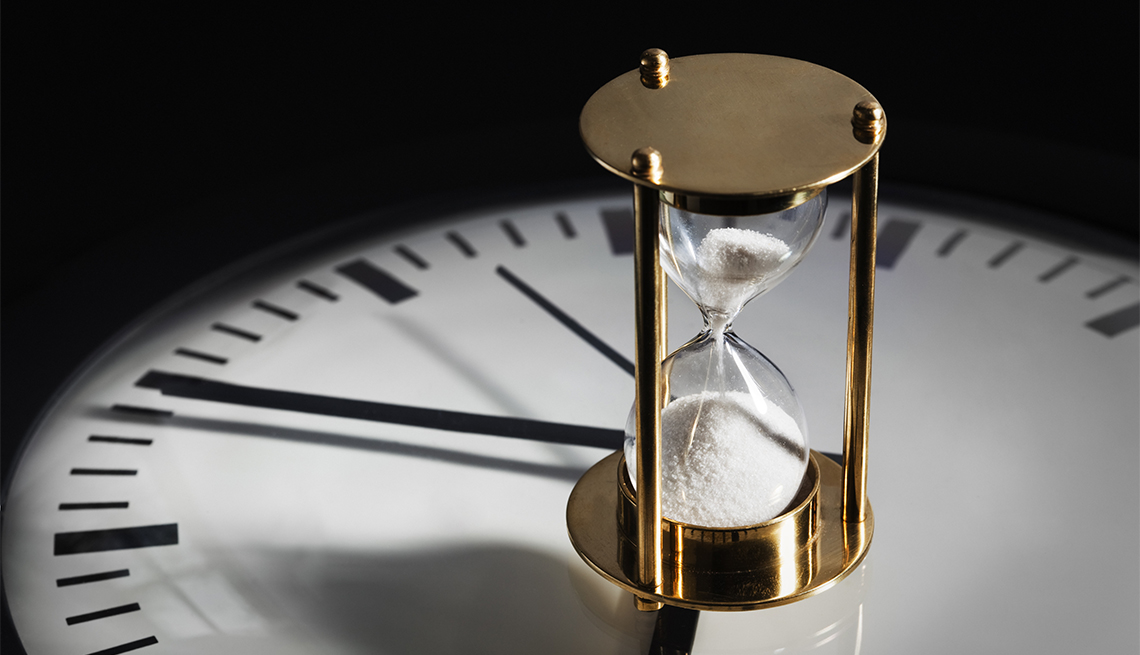
Skip the midlife crisis and choose a midlife evaluation instead
- Select a language for the TTS:
- UK English Female
- UK English Male
- US English Female
- US English Male
- Australian Female
- Australian Male
- Language selected: (auto detect) - EN
Play all audios:

* Decide you don’t want to miss out on new opportunities. * Seek guidance from your future self. * Be curious about fear. * Choose to focus on what you can do with the time that you have.
“It can feel indulgent to think about what we want, because we’re so used to putting others first,” Rosenstein says. “Thinking about what you want may be something you haven’t done since you
were much younger.” As people age, it’s common for them to feel that time is running out to accomplish goals, “but time has been ticking since the moment we were born,” Rosenstein says.
“It’s only our awareness of the passage of time that has changed.” Like Rosenstein, Anissa Buckley has been on both sides of the midlife transformation model. At 50, in the middle of
grieving four significant losses simultaneously — the death of her parents within eight months of each other, a divorce and the sale of her nutrition company — she began traveling the world
to complete extreme physical challenges. Out of those experiences, Buckley, now 55 and based in Tucson, Arizona, founded B-Untethered. The company, which features the tagline “rule
midlife,” offers an online lifestyle program around healthy aging and a place for women to build community at a time when their estrogen levels are dropping, their children are leaving the
house and other changes are afoot. “There is always an opportunity to change your situation,” says Buckley, whose book _Midlife: Turning Crisis into Quest_ is set to publish in late
February. “Acknowledge that this is a great time of life, as we are typically more established, knowledgeable and in a position to take a few risks. I’m a big fan of the statement, ‘If not
now, when?’” While women often find themselves needing a midlife evaluation, men do too. And men generally tend to have more limited experiences expressing and processing emotions, which
can make the process challenging. “The midlife passage can bring tremendous self-questioning, a deep crisis of meaning and much-needed change,” says Nathan Hunter, a men’s life coach in
Southern California. Becoming curious about why you haven’t prioritized your happiness can be an emotional process. “Most of us don’t question why we do what we do,” Rosenstein says.
“Now’s a great time to ask, ‘What are we waiting for?’” HOW TO FIND A LIFE COACH If you’re looking for a life coach, keep in mind that certification in this fast-growing, unregulated field
is not a necessity. But that doesn’t mean you shouldn’t evaluate credentials thoroughly: Graduating from an accredited training program, as well as having a background in psychology,
wellness or business, lends credibility to any life coach’s résumé. Bruce Wayne McLellan, a certified business and life coach in Naples, New York, says a good coach is able to do three
things well: listen (including reading between the lines); reflect back what you’ve said; and see the best in you. “There’s an inherent difference between someone who regurgitates
information and someone who has a natural capacity to help you let go of what you think you know,” he says. When interviewing a potential coach, and after settling on one, pay attention to
who is doing most of the talking, advises business coach Craig Goodliffe, based in Ogden, Utah, who is well-versed in building a successful relationship with a coach. The person doing the
most talking should be you, Goodliffe says. Also, make peace with the fact that you’ll probably be uncomfortable — because trying new things is uncomfortable — and that you might not wind up
clicking with the first life coach you work with. Don’t let that stop your drive to find the perfect fit.
